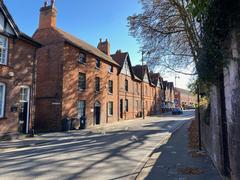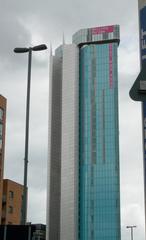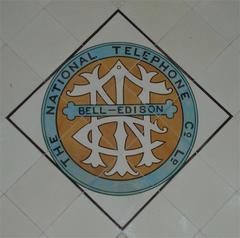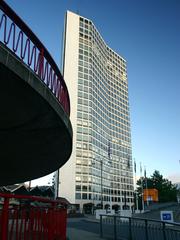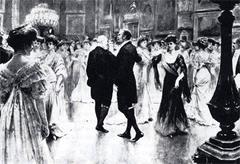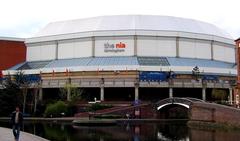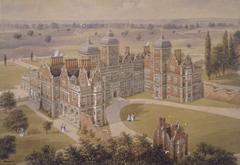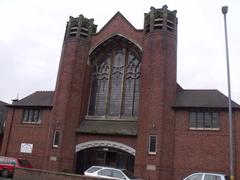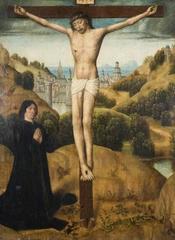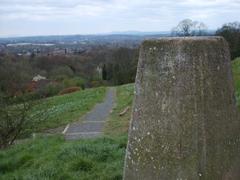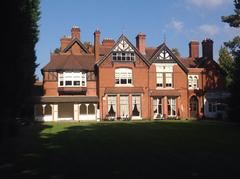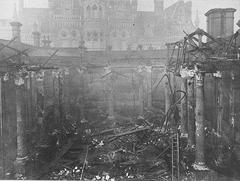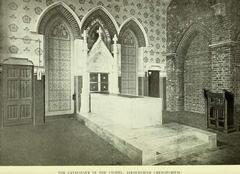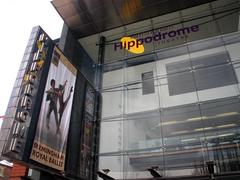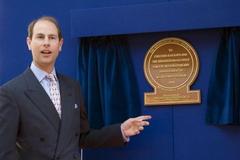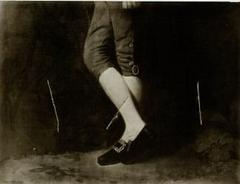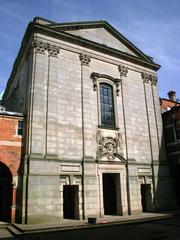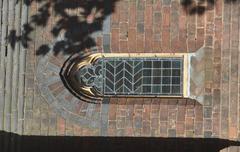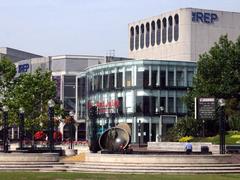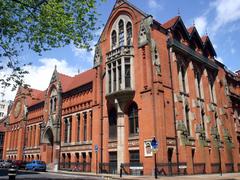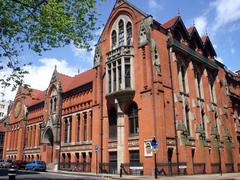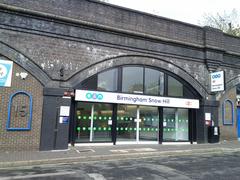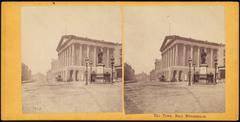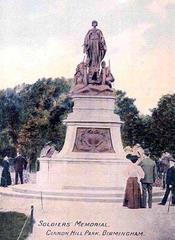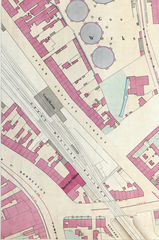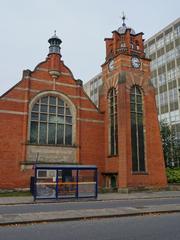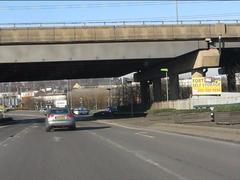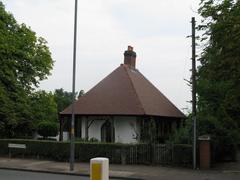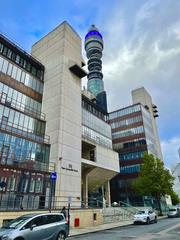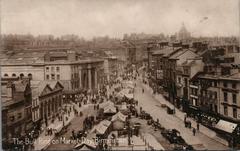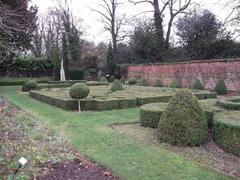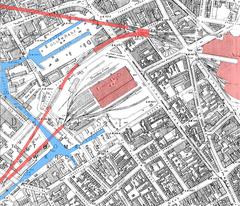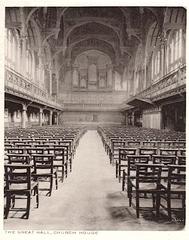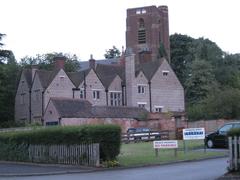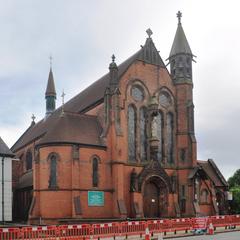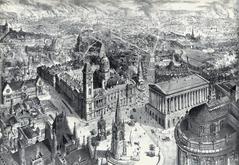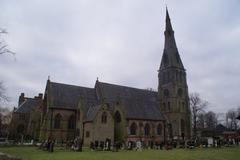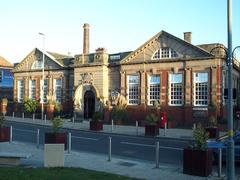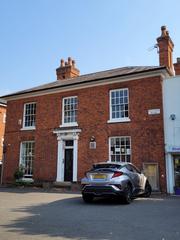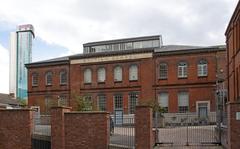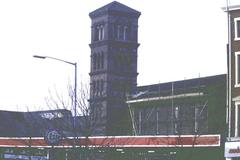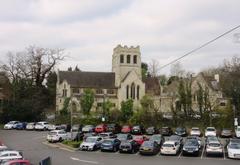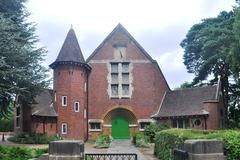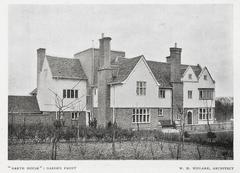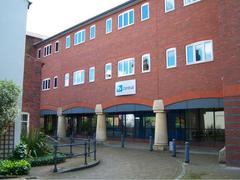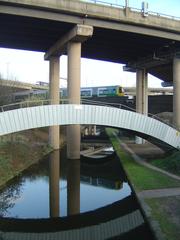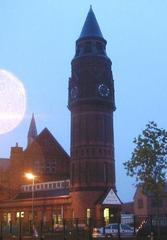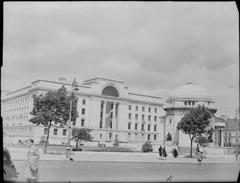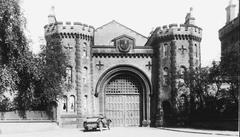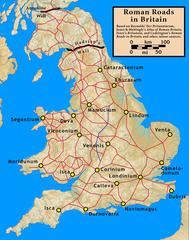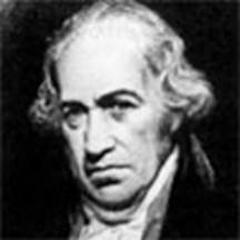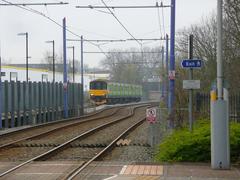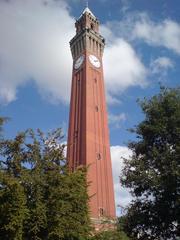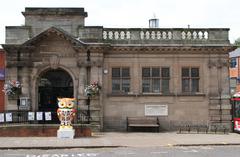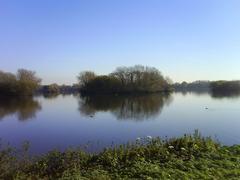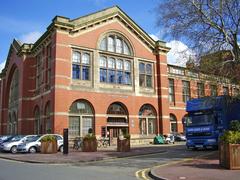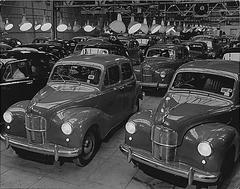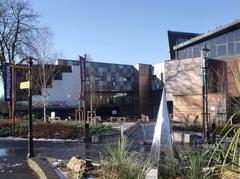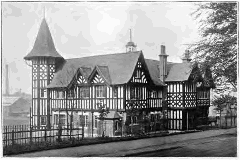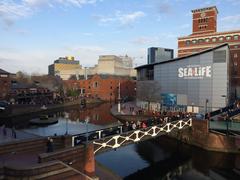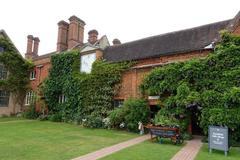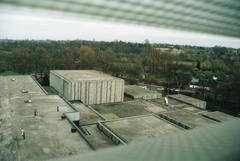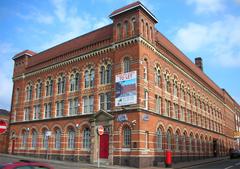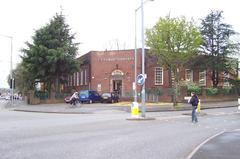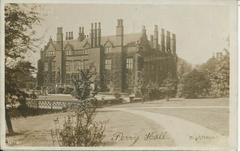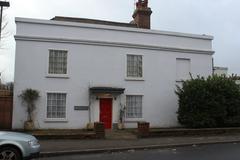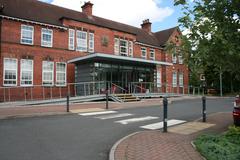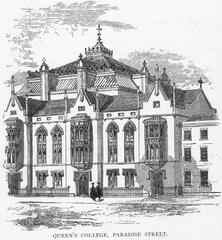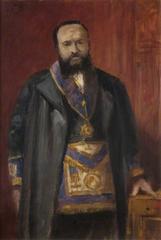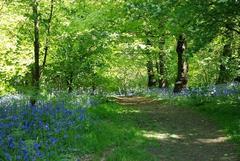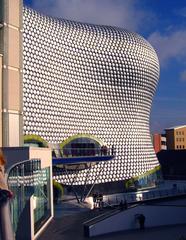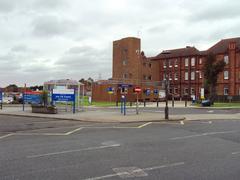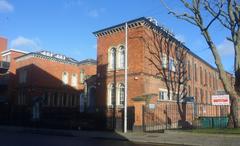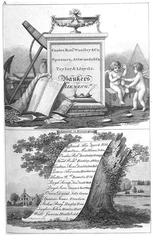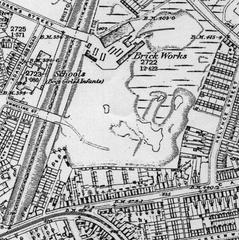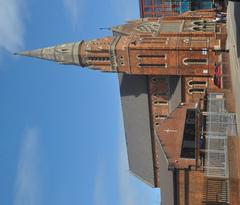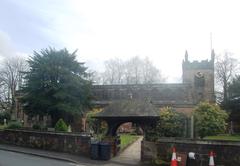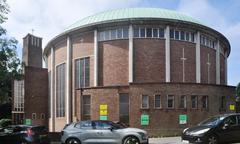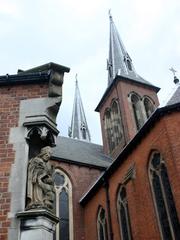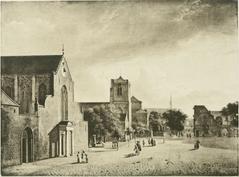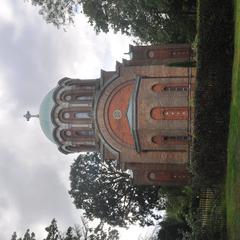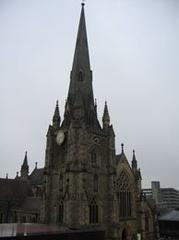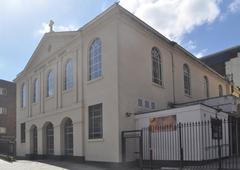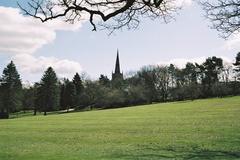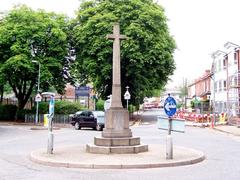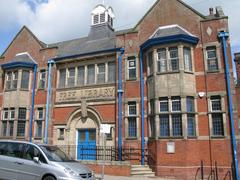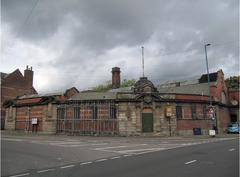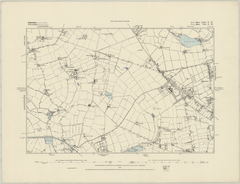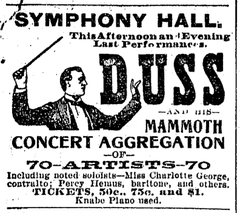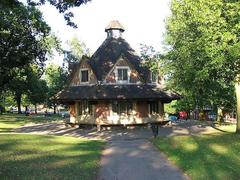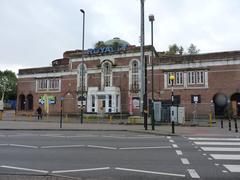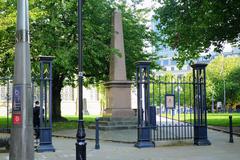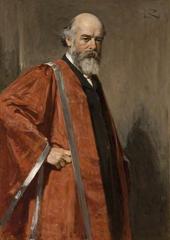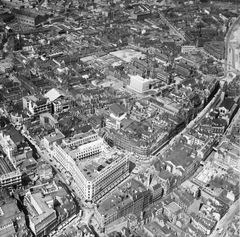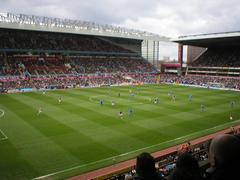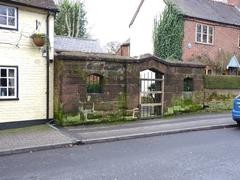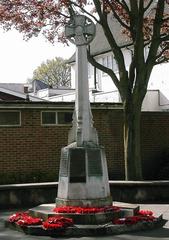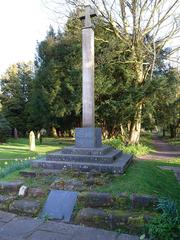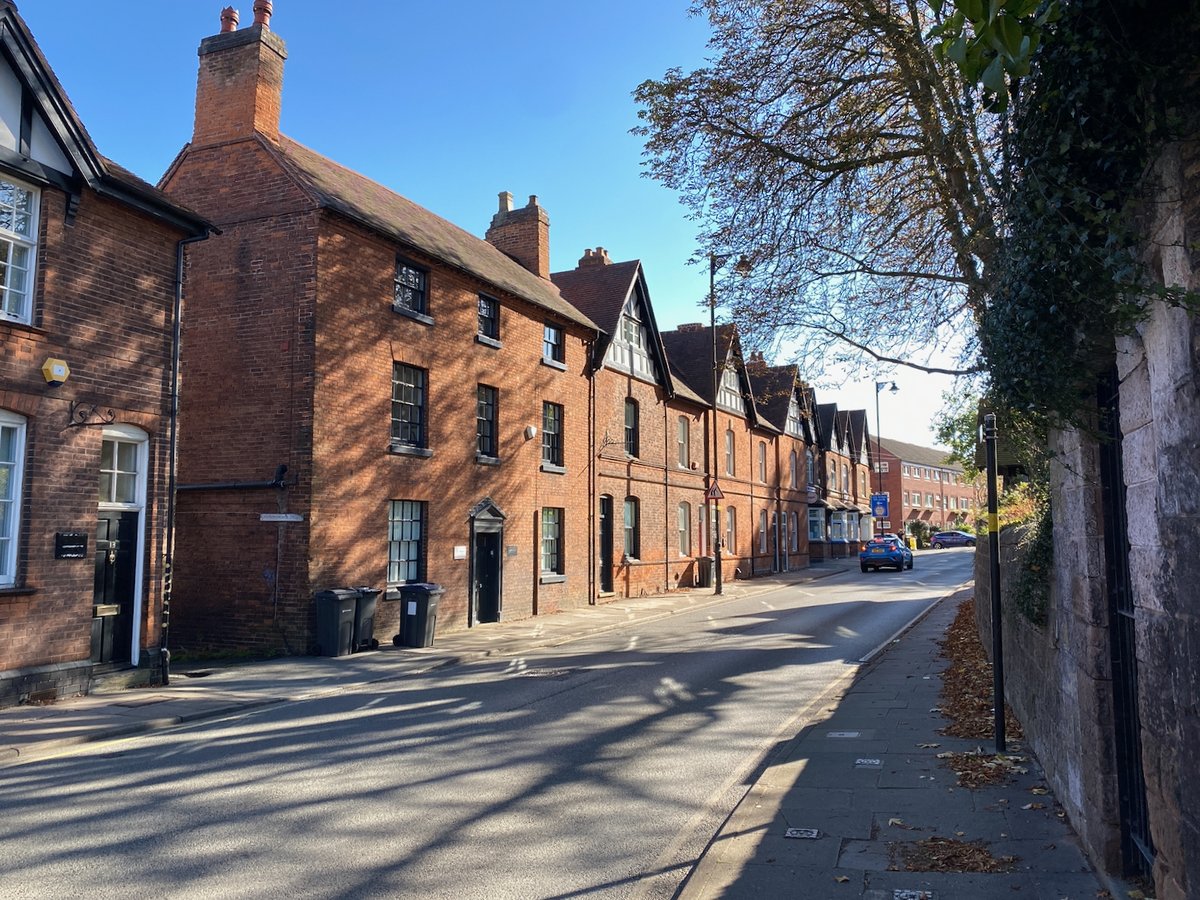
Visiting Church House Birmingham, United Kingdom: Tickets, Hours, and Historical Significance
Date: 14/06/2025
Introduction
Church House Birmingham stands as a cornerstone of the city’s spiritual, architectural, and community life. Originally founded as the Lozells Street Mission in 1893 during Birmingham’s industrial expansion, Church House reflects the city’s Victorian heritage and deep-rooted commitment to social justice, education, and inclusivity. Over the decades, it has transformed from a religious mission into a vibrant community hub, embracing adaptive reuse while preserving its historic character. Today, it welcomes locals and visitors alike, offering insight into Birmingham’s multicultural fabric and ongoing social outreach (Birmingham Mail; blog.sixescricket.com).
This guide provides a comprehensive overview of Church House’s history, architectural features, cultural importance, visitor information—including tickets and accessibility—travel tips, nearby attractions, and details about its role in community engagement and interfaith dialogue. Whether you’re a history enthusiast, a local, or a traveler seeking meaningful experiences, Church House Birmingham is a welcoming and inspiring destination.
Table of Contents
- Introduction
- Historical Development
- Religious Heritage and Community Role
- Architectural Features and Preservation
- Visitor Information: Hours, Tickets & Accessibility
- Travel Tips
- Cultural Significance and Civil Rights
- Visitor Experience
- Community Engagement and Accessibility
- Special Events and Guided Tours
- Nearby Attractions
- FAQ
- Summary and Travel Tips
- References
Historical Development of Church House Birmingham
Founded amid the rapid urbanization of late 19th-century Birmingham, Church House began as the Lozells Street Mission in 1893. Its establishment was a response to the spiritual and practical needs of the city’s growing working-class population. The mission’s Methodist roots fostered a tradition of outreach, education, and social justice—principles that remain central to its mission today (Birmingham Mail).
Through the 20th century, Church House adapted to demographic shifts and changing community needs. A significant refurbishment in 2010 modernized the facilities while carefully conserving its Victorian architectural elements, ensuring Church House remains a living heritage site (blog.sixescricket.com).
Religious Heritage and Community Role
Church House’s Methodist foundation is reflected in its ongoing commitment to social justice, education, and outreach. Throughout its history, it has provided vital services such as language classes, employment workshops, health awareness programs, and food support. The ethos of “In The Community, For The Community” underpins its operations, welcoming individuals of all backgrounds and faiths.
Located in one of the UK’s most religiously diverse cities, Church House actively participates in interfaith dialogue and citywide heritage initiatives, fostering mutual respect and understanding across Birmingham’s multicultural communities (Birmingham Mail).
Architectural Features and Preservation
Church House exemplifies late Victorian religious architecture, with red brickwork, arched windows, and understated Gothic Revival details. The 2010 restoration preserved these original elements while upgrading the interior for modern community use. This careful balance between conservation and contemporary function is a model of Birmingham’s approach to heritage preservation (blog.sixescricket.com; secretbirmingham.com).
Visitor Information: Hours, Tickets & Accessibility
- Location: Lozells, Birmingham, accessible from the city centre by public transport.
- Opening Hours:
- Monday–Friday: 9:00 AM – 5:00 PM
- Saturday: 10:00 AM – 4:00 PM
- Sunday: Events and services—check the official website for details.
- Tickets: General admission is free. Some special events and tours may require advance booking or a nominal fee.
- Accessibility: The building is equipped with step-free entrances, ramps, accessible restrooms, and hearing loops. Large print, Braille materials, and BSL interpreters are available on request (visitbirmingham.com).
- Facilities: Meeting rooms, event spaces, free Wi-Fi, restrooms, and quiet spaces for reflection.
- Photography: Allowed in public spaces except during services or private events.
Travel Tips
- Public Transport: Multiple bus routes serve Lozells; nearest train stations are Birmingham New Street and Jewellery Quarter.
- Parking: Limited on-site parking for blue badge holders; several public car parks nearby, including Snow Hill and Town Hall Car Park.
- Cycling: Secure bike parking is available.
- International Access: Birmingham International Airport is about 10 miles away with direct train and bus links to the city (Jetsetting Fools).
Cultural Significance and Civil Rights
Church House is part of Birmingham’s wider legacy as a city of social justice and civil rights. While not the central site of major civil rights events, it participates in the city’s ongoing dialogue around inclusion and equality. Religious and community buildings like Church House have long provided safe spaces for activism, support, and education, contributing to Birmingham’s reputation as a hub of resilience and diversity (npshistory.com).
Visitor Experience
Guided tours—often available during heritage events—delve into the building’s architectural details and historical context. The welcoming atmosphere, knowledgeable staff, and interpretive displays enrich every visit. Special programming, such as community meals, workshops, and interfaith dialogues, offer deeper insight into Birmingham’s multicultural identity (Visit Birmingham).
Community Engagement and Accessibility
Interfaith and Multicultural Initiatives
Church House is a hub for the Church of England’s Presence and Engagement programme, serving parishes in areas where over 10% of the population are of non-Christian faiths (CofE Birmingham). Initiatives include dialogue events, joint service projects, support for Christian children in multifaith contexts, and resources for church leaders to facilitate interfaith collaboration.
Community Programmes
- Community Hubs: Providing local residents with resources, drop-in sessions, and support.
- Creative Arts and Heritage Events: Including Windrush Day celebrations and projects supported by the Creative City Programme (United by Birmingham 2022).
- Accessibility Leadership: Collaboration with AccessAble and local partners ensures continuous improvement in physical and digital accessibility (AccessAble Birmingham).
Special Events and Guided Tours
Church House hosts a year-round calendar of events—interfaith dialogues, heritage open days, concerts, and workshops. Guided tours are occasionally available and can be booked via the official website or in person.
Nearby Attractions
- Birmingham Cathedral: Renowned for its stained glass and gardens (secretbirmingham.com).
- Victoria Square: Civic heart of the city with historic architecture.
- Birmingham Museum & Art Gallery: Art and local history collections.
- Jewellery Quarter: Historic workshops and museums.
- Library of Birmingham: Landmark building with panoramic city views (visitbritain.com).
- The Bullring: Major shopping destination (mjtravelguides.com).
Frequently Asked Questions (FAQ)
Q: What are Church House Birmingham’s visiting hours?
A: Monday–Friday 9:00 AM – 5:00 PM; Saturday 10:00 AM – 4:00 PM; Sunday hours vary.
Q: Is there an admission fee?
A: General entry is free. Some events or tours may require a ticket.
Q: Is Church House accessible for wheelchair users?
A: Yes. The building features step-free access, accessible toilets, and hearing loops.
Q: Can I request accessibility accommodations?
A: Yes. Large print, Braille, BSL interpreters, and neurodiverse-friendly programming are available with advance notice.
Q: Are guided tours available?
A: Yes. Offered during special events—check the website for schedules.
Q: What are some nearby attractions?
A: Birmingham Cathedral, Victoria Square, Birmingham Museum & Art Gallery, Jewellery Quarter, Library of Birmingham.
Summary and Travel Tips
Church House Birmingham embodies the city’s spirit of resilience, faith, and community. From its origins as the Lozells Street Mission to its current role as an inclusive community centre, it offers a unique perspective on Birmingham’s religious, social, and architectural legacy (Birmingham Mail; blog.sixescricket.com). Visitors benefit from free access, adaptive facilities, and engaging community activities, making it an essential stop for anyone seeking to understand Birmingham’s multicultural identity (npshistory.com; CofE Birmingham).
To plan your visit:
- Check current opening hours and events on the official website.
- Use public transport for convenience, and consider booking tours in advance.
- Download the Audiala app for guided tours and insider tips.
- Explore nearby historical landmarks to enrich your experience.
References
- Took a tour of Birmingham’s religious history, Birmingham Mail
- Birmingham Historic Sites, Sixes Cricket Blog
- Best Things to Do in Birmingham, Secret Birmingham
- Birmingham Civil Rights History, National Park Service
- Presence & Engagement, CofE Birmingham
- Visit Birmingham Official Tourism Website
- Hillsong Birmingham
- Jetsetting Fools
- AccessAble Birmingham
- United by Birmingham 2022
- Changing Places Toilets
- mjtravelguides.com
- Holidify
